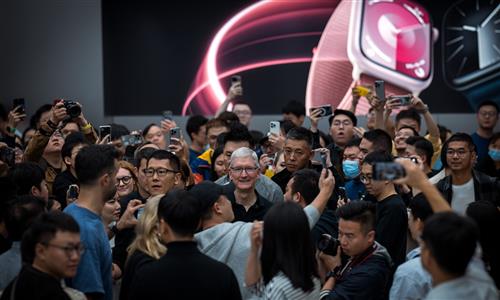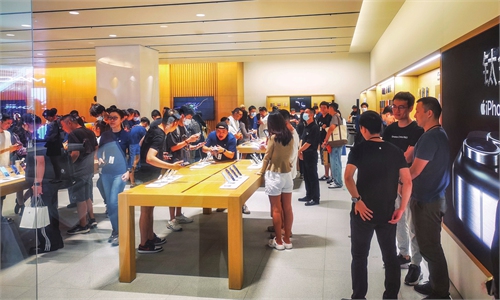Apple’s Vision Pro gains 3C certification in China, paving way for its entry to the huge market

Apple's new Vision Pro virtual reality headset is displayed in California, on June 5, 2023. Photo: VCG
US tech giant Apple's headset Vision Pro has achieved a significant milestone before entering the Chinese market, gaining official approval from China Compulsory Certification 3C certification, paving the way for its sale on the Chinese mainland market.
According to the website of the China Quality Certification Center, the certification for Apple's Vision Pro was issued on May 13, 2024, with validity extending until May 12, 2029.
Despite being priced at $3,499 in the US market, equivalent to 25,325 yuan, Apple has yet to disclose the official pricing and localized name for Vision Pro for the Chinese mainland market.
Notably, the trademark for Vision Pro in China has been owned by Huawei.
Vision Pro, initially released in June 2023, was not available in other regions outside the US market until today, according to media reports.
Reuters reported on May 14 that Apple plans to unveil Vision Pro in international markets following the Worldwide Developers Conference (WWDC) scheduled for June 10 -14 this year.
In addition, Apple is currently conducting training sessions for its employees in seven countries, including China, on effectively showcasing its Vision Pro products to customers in new markets.
The introduction of Apple Vision Pro to the Chinese mainland market, coupled with potential local production, is expected to "facilitate a exchange of digital product-related technologies and research between Apple and local Chinese teams," Liang Zhenpeng, an independent tech analyst, told the Global Times on Tuesday.
Apple's fiscal second-quarter earnings report this year said the company's overall sales fell 4 percent to $45.96 billion and iPhone sales fell 10 percent year on year, suggesting weak market demand for the current generation of its smartphones.
Apple's Vision Pro entering the Chinese market could also help the company boost its global market share and brand influence in China, as the company fends off concerns over decreasing consumer confidence in this market, Liang noted.
Global Times




